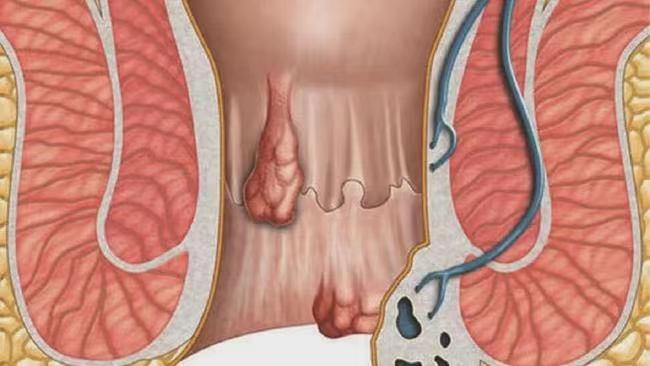Overview Hemorrhoids are swollen blood vessels in the rectum or anus. Hemorrhoids are generally classified according to severity. There are four grades: Grade I: Small hemorrhoid without prolapse, not visible from the outside, with usually mild symptoms. Grade II: More markedly enlarged hemorrhoid, which sometimes comes out with the push, and then returns to its original position. Grade III: Enlargement to such an extent that the hemorrhoid continually bulges outwards, but can still be pushed back. Grade IV: Very large prolapsed hemorrhoid which can no longer be pushed back in. Factors that can cause hemorrhoids are: – Increased pressure in the rectum – Chronic diarrhoea – Difficult bowel movement or constipation – Holding back the stool – Insufficient physical activity – Not drinking enough water – Overweight – Pregnancy – Regularly eating food low in fiber – Genetic predisposition – Old age |  |
Treatment for hemorrhoid with RFA technique
| The strengths of the Rafaelo procedure are, on the one hand, its very low morbidity, i.e. it is a low-pain technique in most cases, with the use of level 2 painkillers for two or three days, after which patients very quickly stop taking their painkillers. So the pain is usually very minor and quite short compared to the Milligan Morgan haemorrhoidectomy. The effectiveness seems to be true, both in the French evaluation and in my personal experience, as we have less than 5% surgical recurrence per year. The second aspect of this technique, which is also very, very interesting and puts it far ahead of the other minimally invasive techniques, is its simplicity and speed. Speed is really a big advantage of the technique because the administration of the product, let’s say, happens in two minutes, two and a half minutes, and the whole procedure takes a maximum of 10 minutes. Dr. Dominique Bouchard, MD Proctologist , Maison de Santé Protestante Bagatelle, Talence, France |
A. Laurain, D. Bouchard, J.-M. Rouillon, P. Petit, A. Liddo, B. Vinson Bonnet, A. Venara, J.-M. Didelot, G. Bonnaud, A. Senéjoux, T. Higuero, P. Delasalle, A.-L. Tarrerias, F. Devulder, A. Castinel, C. Thomas, H. Pillant Le Moult, C. Favreau-Weltzer & L. Abramowitz; Techniques in Coloproctology 2 April 2023
Prokopis Christodoulou, Ioannis Baloyiannis, Konstantinos Perivoliotis, Dimitrios Symeonidis & George Tzovaras Techniques in Coloproctology 13 November 2022
Jean-Michel Didelot, Benjamin Raux,
Romain Didelot, Franz Rudler, Aurelien Mulliez, Anthony Buisson, Armando
Abergel, Pierre Blanc; Annals of Coloproctology 11 October 2022
Dr. S. Tolksdorf, D. Tübergen, C. Vivaldi, M. Pisek, F. Klug, M. Kemmerling, H. Sch?fer; Techniques in Coloproctology March 2022
Sarah Hassan, Daniel McGrath, Richard Barnes, Simon Middleton; Annals of Coloproctology 18 August 2021
Initial experience of radiofrequency ablation for the treatment of advanced haemorrhoidal disease
Jignesh Ashwin Gandhi, Pravin Hanumant Shinde, Amay Banker, Sadashiv N. Chaudhari; Gastroenterology Review 2021
J.-M. Didelot, R. Didelot; International Journal of Colorectal Disease 2020
M.M.R. Eddama, M. Everson, S. Renshaw, T.
Taj, R. Boulton, J. Crosbie, C. Richard Cohen; Techniques in
Coloproctology 24 July 2019
H. Sch?fer, S. Tolksdorf, C. Vivaldi; Coloproctology 201